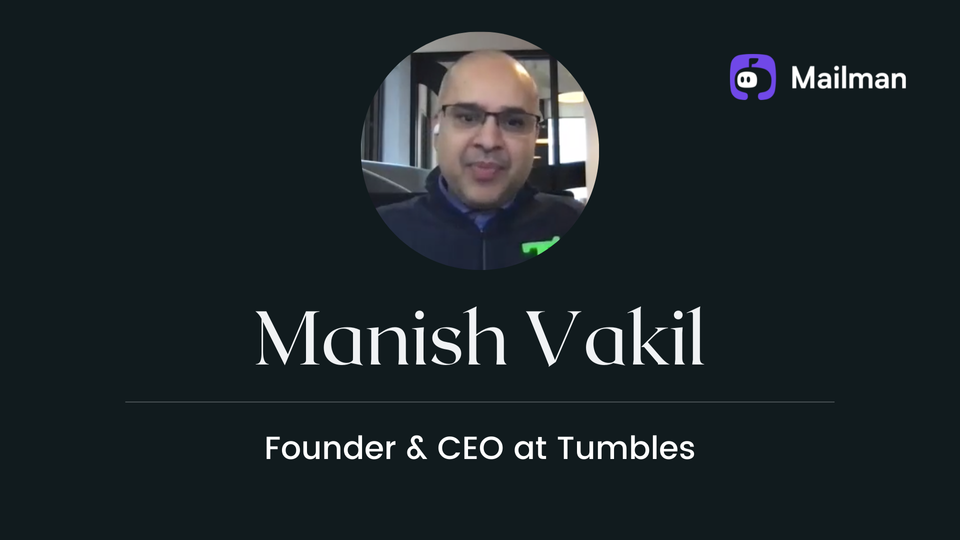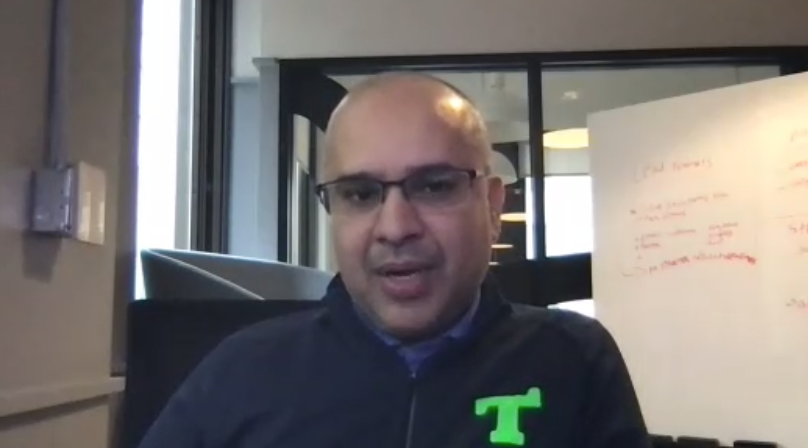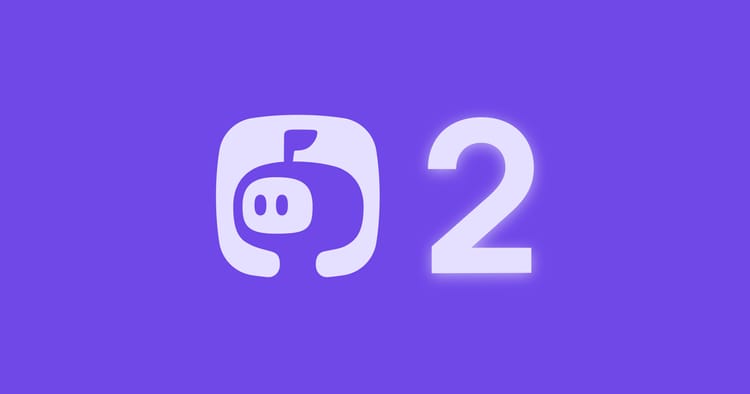We don’t need more time; here’s what we need instead

People keep saying they need more time. More time to get more done, more time to spend with family, more time to go on a hike, more time to watch that new web series.
But actually, we don’t need more time.
What we need instead is to organize time better.
The ability to see what’s essential and what’s not essential and doing them based on that priority order. That’s the skill we all need to learn and implement. If we’re able to do this well, we’ll not feel the lack of time because there’s plenty of it if we use it right.
This is what Manish Vakil believes and practices daily. He’s so particular about how he spends his time that he sits and decides his schedule for the next day, the day before. That’s probably the reason he’s able to get a lot of important work done in a day.
He also uses several other time management techniques like time blocking and clustering meetings together, and even quite a few apps that help him guard and guide his time. I talked to him in-depth about how he does it exactly and what all tools he uses.
Besides, we also talk about how he started his 1st business at 21, the concept of ‘children’s gym,’ his ideal & typical day, and why he says ‘no’ to 99% of things that come to him.
Let’s hear from him directly.

Manish introduces himself

Hi, I’m Manish. I’m an entrepreneur at the core, started my 1st business when I was 21 years old — I started doing virtual tours of wedding facilities. For context, I'm 43 now, so this is about 22 years back. Now people have regular virtual tours, but back in the day, we used to put a camera in the middle to take the tour, and we used to host the sites.
After that, I got into franchising, and I started my first franchise in 2005. My wife would say that was crazy as we were just three months into the marriage when I quit the job and got into the franchise business. If you ask me now if I’d do that again, I would say that’s a little bit risky but having a supportive wife helps; that’s the reason I was able to do that.
I opened three franchises within nine months of starting. We ran those for a good 7-8 years, which helped us learn its basics. My original goal was to have a company be a franchisor. But as they say, it’s good to walk in the shoes than just watching someone else do it.
After running those franchises for 7-8 years, I was looking to start my own business. So I bought another company, remodeled it, retooled it, built completely new infrastructure, and rebranded it as Tumbles. That’s the company I run now.
What are ‘Children Gyms’?
For children, physical fitness is extremely important. Especially if you look at it now, everyone is stationary because of the pandemic. Children are doing school from home. They’re sitting in a chair all day long, which is not really healthy. Their bodies need to move.
We have children’s gyms to get them moving, starting with 4-month-old kids. Now you must be wondering what a 4-month-old kid would do in a gym? I'll get to that. So we have gym classes for kids as small as four months old to 12 years old. Anyone below three years old comes in with their parents.
We work on different parts of a kid’s physical growth: upper body strength, core strength, lower body strength. We work on developing these different muscle groups so they can start crawling, hold their head up and do different kinds of activities like throwing a ball.
You’d have observed some kids are delayed in walking, and some start walking early. What is the reason for that? To give you an example, I have twin boys; they started at Tumbles gym, they started walking in 7 and 9 months respectively. That’s quite early for kids to start walking. It was because we built up their body strength to hold their weight early in the Tumbles gym.
Other than that we also teach sports to kids, like cricket. Before kids can start hitting the ball, they need to build gross motor strength and fine motor strength in their hands to hold the bat. Those are the kind of things we do in a children’s gym like Tumbles.
How Tumbles got started?
There’s an interesting story behind it. I originally started Tumbles because of my nephews. We could not find a place for their birthday party. At the same time, I saw that there was a need in the market for children’s gym and hence we started Tumbles. Thereafter, our nephews and our friends’ kid’s celebrated their birthdays in the gym and had a complete blast. That’s how we really got started.
On making decisions
I think people generally chase dollars and make decisions in terms of what makes the most money. I also want to make money, but I don't think only in terms of money when it comes down to making decisions. My decisions are always based on questions like, “Is it fun?”, “Do I enjoy doing it?”, “Is it going to help people?”.
I knock on wood as I say this, but Tumbles is going to double the size this year. While the pandemic is partly the reason for that, I think that’s mainly because we tend to focus on people and our product which is for the kids.
When I go around the gym facility, looking at the kids gives me joy. They’re having so much fun and smiling all the time.
They do cry, and they cry when they've to leave. They don’t want to leave.
This tells me that they’re having a good time and enjoying, while of course getting fitter and strengthening their body. That’s something really valuable in my eyes. Those are the kind of things I look at while making decisions.
On staying organized
I like building companies. I want to keep reinventing myself and building new things. For doing that, I need to organize myself and my time in order to be more productive. That's where Mailman comes in.
We’re always thinking how do I find more time, but the thing really is, we need to get organized to get more out of the time we already have. Mailman prevents me from checking mail again and again, which helps me stay focused and not go all over the place.
On working a job
I started in a job right out of college. I had a job at a financial company; I was on Wall Street for a while. I remember I fell asleep at my desk once and woke up the next day in the morning. I won’t forget that my manager woke me up. That was interesting, to say the least, considering it was my college graduation that day, and I missed it.
I appreciate the jobs I had more now than when I had them. I had a hard time working at companies as I was always thinking out of the box.
Interestingly, I didn’t enjoy the jobs that paid the most. For example, I had a job at a rental car company. I started as a management trainee. I enjoyed working there the most because I learned about business (profit & loss), how to do local marketing, how to talk to customers, set pricing strategies, hire people, and manage employees.
Those are the kind of things that propelled me to the next level where I’m now. It was a fast-paced environment for sure, but it was very different from anything else I had done.
Besides, I had a hard time sticking to one job as I got bored. After running businesses for years, I have a hard time getting bored; it’s been decades since I was last bored..
Manish's typical day
There’s a lot of stuff that I'm trying to modify with my day. Let me first profess this – I have a hard time sleeping. Now it's a good thing and a bad thing. Good thing because I’m excited about something or the other all the time. Bad thing because it makes it hard for me to switch off.
You know people say they look forward to Friday, I look for to Monday. I’m always looking forward to what I am going to do next.
This has been a problem with me for a long time; my team would say the same thing, I send emails at odd hours. That's why now I have Mailman to keep myself away from my email from 11 in the night to 7 in the morning. So none of the emails come in during that time. That helps me tell myself, “Hey, you’ve to spend this time sleeping.”
I try to go to sleep by 11 o'clock. I still wake up by 2:30 in the morning. That's weird, but that’s always the case, then I go back to sleep. Then I wake up at around 6:30ish. By the way, this is my 'ideal' time frame. Now honestly speaking, that's not the case. I'm just trying to get to that.
I sleep at around 12:30 or 1 o’clock. Then I wake up around 6:30, which isn't very bad as 5 - 6 hours of sleep is fine for me.
One thing I've added is, in the afternoon, if I'm tired, for 15 minutes, I'll turn the phone off, put everything away and just sit there with my eyes closed in a room. No disturbances, no dings going off, no alarms, no nothing. This has been absolutely amazing in terms of recharging. It works really well in my case.
Another habit I'm trying to break is grabbing my phone 1st thing in the morning. I'm trying not to do that – to give me 15-30 mins before I touch my phone. We drink 'chai' during that time.
All my meetings are in the morning. As I believe it’s hard to focus after you eat. It’s different for different people. I also cluster my meetings together. Back to back. I believe in getting into the rhythm and getting most work done because of it. I do have some meetings in the evening as we're expanding into Asia, so those meetings can't be in the morning as it's according to Asia time.
Then I block out time for focused hours. I don't believe in multitasking. I don’t think the mind can work on 2-3 things simultaneously. I use the ClockWise app for intelligent time blocking.
Before I go to sleep, I look at the calendar for the next day and plan out the things I've to do, what do I need to think about, and prepare in advance if anything requires that. I like to be overprepared for things.
I try to get home by 6 in the evening. We all have dinner together with the family, every day, no matter what.
On saying 'no' to 99% things
So I definitely don’t say ‘yes’ to everything. Actually, I say ‘no’ to 99% of the things that I get.
My thinking behind this is, if I can't add value to it, I'll not waste the other person's time.
On feeling low
Last Wednesday, I had allotted the entire time as focus time, and I wasn’t able to be productive and get anything done. So what I did was I got up and went for a walk. I just accepted the fact that I’m not productive at this time.
Earlier I used to fight it and force myself to do the thing I was supposed to, which didn’t help much. Now I just go for a walk, a mile or 2, and then my mind starts working. Sometimes you just need to let it be to see it start working.
The other thing I like doing in such situations is to sit and watch a movie.
I also like music. I have been using this app called brain.fm, where I just go and play cinematic music. That helps me disconnect and get into a good mental state. It’s almost like therapy for me.
Email is the #1 time sucker
I feel we need to understand that the world is not going to end if we don’t check the email this second. There’s this anxiety that comes with not checking emails constantly. That’s why I feel email is the number 1 time sucker; it’s not browsing or anything else, but email.
I’m trying to get better at this by using Mailman. Currently, I check emails every 2 hours, my next goal is to get to 3 hours. That would be ideal.
On using paper notebooks for writing ideas
I still use paper notebooks to write down my ideas and notes on a daily basis. I have been doing this for a long time; I have multiple filled notebooks with me.
If an idea looks good to me, it’ll go into my computer. If I want to convert it into something actionable, I’ll put it in Asana, where I can assign tasks and due dates to it.
Besides, I also write down three things I need to get done in a day to call it successful. These 3 things are prioritized based on if their deadline is approaching, or they’re urgent as in the sooner you do it the better. Urgency and deadlines dictate my top 2 priorities. The 3rd thing is usually something that’s not very important, but if I neglect it, it will pile up over time and hurt later. For example, if I don’t call my CPA from time to time, it’s going to be a problem when tax time comes. These kinds of things don’t seem important in the moment but can take a toll later.
I have those three things written down for today and I’ve to do them by 2:30 PM. If I’m not able to do them by 2:30, I’ll ask myself, “what did I do instead?”. That’ll help me get more insights into where my time is going.
One extra hour in a day
I think most people would say family or something to that, but I think family is always there and you’ve to find time for it even if you don’t get an extra hour.
So if I had an extra hour, I'd spend it on introspecting and asking myself, “what can I learn from the day?”. Meditation, sitting still, volunteering, or things of that nature is what I’d like to do.
How to follow Manish?
You can follow me on LinkedIn. I occasionally post there. My email is manish@tumbles.net, you can reach me there, and I'll be happy to help in any way I can.





